Health
Authors on Friedreich’s Ataxia – María Blasco Gamarra
by Michell Spoden
This interview is part of literacy project with Authors on Friedreich’s Ataxia series, and my interviewee today is 41-year- old María Blasco Gamarra from Spain.
Michell: Please tell a bit about your academic background and profession.
María Blasco Gamarra: I am a graduate in Hispanic Studies and a graduate in Basque Studies of the University of Navarra. I don’t have a paid job.
Michell: Please let our viewers know about your recent project and how you became a part of it?
María Blasco Gamarra: The main goal of the project is to encourage donations to BabelFAmily for biomedical research into Friedreich’s Ataxia and, so, it is us who take part and who are the protagonists in achieving our goal.
It has taken some time to write the novel, to edit it and find a way to publish it on paper (traditional publishing) but now, we are also thinking of publishing in different media.
Initially, we published the novel in Spanish but intend to make the project international, translating it into different languages thanks to the volunteer translators at BabelFAmily (international non -profit making organization that is responsible for the selection of projects for research into Friedreich’s Ataxia). All of the authors have agreed with this.
Personally, I decided to start looking at a significant association to back and understand the project. Once found, they informed, in various languages, ataxia associations and later, I personally interviewed candidates and we gradually defined and built the novel. Of course, there were more goals and one of them was to raise awareness of the existence of this serious and also rare illness.
Michell: There is something similar with each of the writers for this project what is that?
María Blasco Gamarra: Yes, Friedreich’s Ataxia, because 14 of the 17 authors suffer from it.
Michell: Your group has decided to translate this book into different languages, please tell us more about that aspect of the project.
María Blasco Gamarra: Yes, the book is currently being translated into English because, in fact, it was the primary language in which 6 authors from America, England, Australia, and South Africa wrote. French, Portuguese and Italian are our next targets.
Michell: Do you believe that this project will lead to other extraordinary events in the future?
María Blasco Gamarra: Of course! No question! That is something which motivates us all. I am convinced that we have a fantastic story you can adapt to different artistic formats such as theater, cinema, music, painting, sculpture, and even television.
Michell: Outside of raising funds for the book for the cause you are currently mediating for; what other humanitarian efforts have those in the group been involved with and why?
María Blasco Gamarra: So far my challenges have been simpler and I have self-published for a small circle of acquaintances, but now I am faced with a great international challenge which will be an adventure without limits!
Michell: Since all of you struggle with the same disease what are the greatest challenges with having it. Is there anything that you would like to share with us that could help us to better understand what we outsiders can do to make a difference?
María Blasco Gamarra: Personally, I think that overcoming odds is inherent in our humanity; rather it’s a life choice that is highlighted when difficulties arise. If these difficulties are physical, the effort to overcome is more evident and the larger they are, the more important they are to overcome – as much for the person experiencing them as for the person who looks on.
Being a woman also marks my character and accentuates this feature, because it’s in our blood to overcome. Throughout history, women have had to prove that their work is as worthy and deserving as any other, even more so. Today, the work of a man still has more prestige in the arts than women painters, writers, poets, sculptors … In The Legacy of Marie Schlau, 15 of 17 authors are women, this only serves to accentuate the depth and emotion in the characters of the work but at the same time, we have not neglected the action and mystery.
There are times when the body, health, mood, different circumstances: time, children, work, money … do not allow us to enjoy ourselves the way we want, but we do not have to be discouraged, deflated, nor overwhelmed by this but instead we should try to find a way to carry on enjoying life: everyone in their own way, and happiness will come when it finds us.
Michell: What were some of the barriers you ran into during your project? How did you solve the issues?
María Blasco Gamarra: In a project of this nature, problems always arise and we must be prepared to overcome these, especially regarding the different languages of the authors. Not only that, I would say there are communication problems on top of the language difficulties, but we overcame them because we wanted to take the project forward. A severe difficulty which I had specifically was typing an email, at the same time, coping with the progression of the illness, it became increasingly hard and it is difficult to offer literary criticism to an author with due tact so as not to hurt them while summarizing in as few words as possible. All of this is complicated even when speaking the same language, so I think it has become very clear that what is important in life is the will.
Michell: Did any of you feel you had learned some major lessons? If so what were they?
María Blasco Gamarra: A lot. The main thing is respect for difference. Respect is not easy when you do not know the circumstances of each person, this occurs in all facets of life and it is why awareness is one of our goals. It is also important that the whole group of writers has access to the same information to facilitate strategies but of course, there is the problem of each one’s personal involvement and their interest. Everything I’ve just explained is easy to put into words but it is very difficult to do.
At a literary level I have also learned a lot because we had to correct authors’ other chapters – it is always easier to find faults in others than in oneself. I also learnt a lot from the diversity of styles and with regard to the use of automatic translators… well, what can you do!
Michell: What are some of the individual’s in the group’s favorite authors?
María Blasco Gamarra: My favorite authors include Isabel Allende, VC Andrews, Barbara Wood, Ken Follet, but of course my tastes may vary depending on the mood I’m in when you find me!
Read Fátima d’Oliveira’s Interview about international literacy project against Friedreich’s Ataxia.
Related Posts
One thought on “Authors on Friedreich’s Ataxia – María Blasco Gamarra”
Comments are closed.

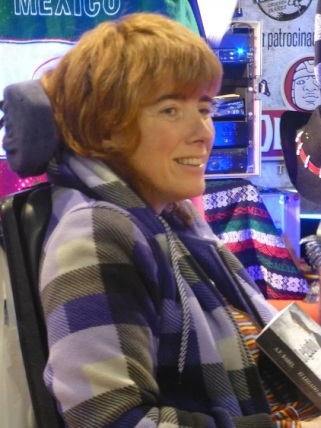


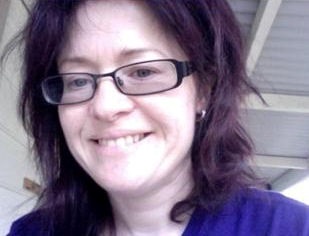
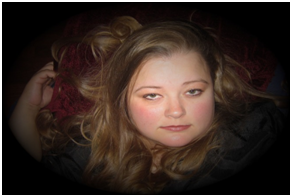
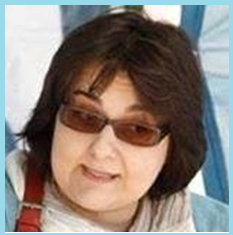
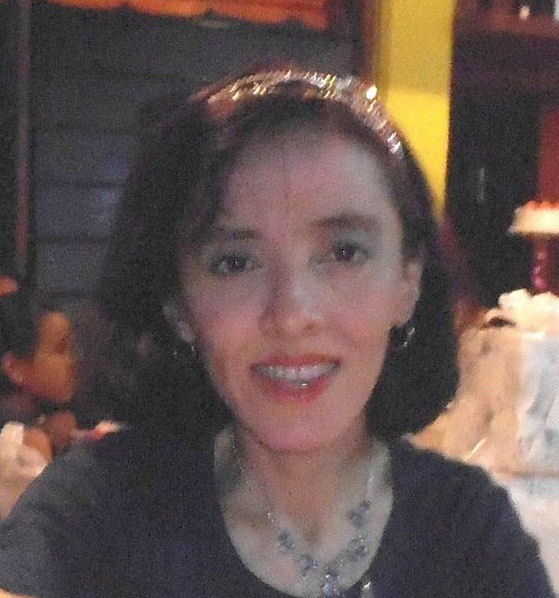


The work and awareness of FA has come a long way since my wife Jean was diagnosed in the late 1960,s.Jean passed away six years ago at the age of 53.We had 32 great years together and have two fine strong sons and two lovely grandsons that Jean never got to see.But I am sure she is looking down from above at them.I have some great memory’s and stories that we experienced in the 34 years we were together.